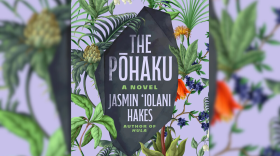In November 2022, Hawaiʻi lost a healer who played a crucial role in the state's cultural development.
Dr. Noa Emmett Auwae Aluli was a family practice physician on Molokaʻi and a leader of the movement that returned the island of Kahoʻolawe to the people of Hawaiʻi from the control of the U.S. military. He was a guiding light of the Native Hawaiian community.
His story is this week's segment in our ongoing project with the University of Hawaiʻiʻs Center for Oral History. UH ethnic studies professor Ty Kāwika Tengan shares the legacy of Aluli.
Dr. Noa Emmett Auwae Aluli’s grand-aunt Emma ʻAʻima Aʻiʻi Nāwahi and her husband Joseph Nawahī led the Hui Aloha ʻĀina movement in support of Queen Lili’uokalani. His grandfather Noa Webster Aluli advocated for the Hawaiian Homes Commission Act. Dr. Aluli followed in his ancestors' footsteps through his championing of Hawaiian lands and his aloha for the well-being of Native Hawaiians.
ALULI: The health of the land is the health of the people is the health of the nation. So when you look at the health of the land, we're looking at not only the ecology, but the water and the conservation efforts and the native plants and the kind of, like, elimination of alien species, including the rats, the cats. You look at all that holistically. What it takes to do that — it takes manpower, it takes people, it takes monies, it takes volunteers, takes people working together. It takes the observation that what's working, what's not working. When we talk about health in a native frame — you know, it's not just about the individual health. Gotta look at the broader picture as to where we go from here and looking at the health of the land you gotta look at the health of the surrounding waters. Now we got to look at the health of the globe because of the climate change — got to be really, you know, high tech in a sense, but very spiritual in the other sense.
Dr. Aluli touched the hearts of people with his kindness, humility and aloha. He inspired generations of Hawaiians to stand up for the land and for the importance of practicing culture. On a personal note, he showed me what it meant to carry and fulfill kuleana to the ‘āina and the lāhui.
ALULI: We can regain those ancestral memories if we observe and if we do the ceremonies and if we sweat on the land to repair it whether it's planting or straightening up the boundaries of an archaeological site where we kind of make sure the bones of those who are buried there donʻt continue to waste away. That ancestral memory is there, like it's always been there. We're not in touch with that. Some scientists are calling it cellular memory – that it's in our genes. It's there. We just have to pay attention. We just have to call on it. We just need to be the scholars in that way. So we see Kahoʻolawe as offering all of us, not just Hawaiians, the same opportunity to do those observations, to do those ceremonies, to do the work. We've got much going for us as Hawaiians. We've been able to, from almost losing everything, to reclaim some lands. We now have an island that can teach the generations, ongoing without interference.
———
Mahalo to the Sacred Land Film Project for the interview. This oral history project is supported by the SHARP initiative of the National Endowment for the Humanities through the American Council of Learned Societies.






